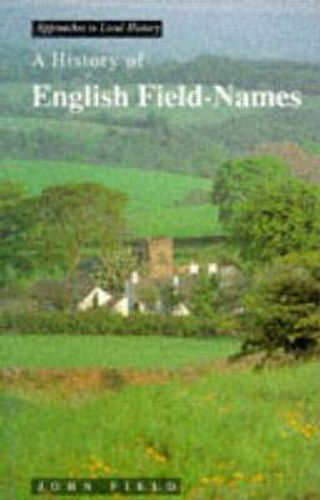Readings Newsletter
Become a Readings Member to make your shopping experience even easier.
Sign in or sign up for free!
You’re not far away from qualifying for FREE standard shipping within Australia
You’ve qualified for FREE standard shipping within Australia
The cart is loading…






This series comprises books on particular themes and aspects of local history. Written by experts for a student and lay readership it includes practical volumes that explore the methodology of local research, and volumes that themselves illuminate the hidden lives of ordinary people in times past. Field names - as they survive in the modern countryside, or leave traces in the names of streets and housing estates, or can be retrieved from the past via estate maps and old documents have an intriguing and enjoyable history in their own right. But, more importantly, they are also a rich source of information about the communities that created them. In this latest contribution to the Approaches to Local History series, John Field examines the sources for our knowledge of field-names, and explores their history, variety and dissemination in England. He then goes on to show how even the most commonplace names can yield unsuspected evidence about the changing lives and working practices of our predecessors. Key Features - may seem specialised to the outsider, but place-name studies are an increasingly important and sophisticated part of the discipline of local history. It is not just a book for country-livers: field names survive in many different urban contexts to testify to the rural past beneath the city streets. Note that the book deals with the English experience: the same principles and possibilities apply to Wales, Scotland and Ireland, but John Field does not discuss their distinctive nomenclatures here.
$9.00 standard shipping within Australia
FREE standard shipping within Australia for orders over $100.00
Express & International shipping calculated at checkout
This series comprises books on particular themes and aspects of local history. Written by experts for a student and lay readership it includes practical volumes that explore the methodology of local research, and volumes that themselves illuminate the hidden lives of ordinary people in times past. Field names - as they survive in the modern countryside, or leave traces in the names of streets and housing estates, or can be retrieved from the past via estate maps and old documents have an intriguing and enjoyable history in their own right. But, more importantly, they are also a rich source of information about the communities that created them. In this latest contribution to the Approaches to Local History series, John Field examines the sources for our knowledge of field-names, and explores their history, variety and dissemination in England. He then goes on to show how even the most commonplace names can yield unsuspected evidence about the changing lives and working practices of our predecessors. Key Features - may seem specialised to the outsider, but place-name studies are an increasingly important and sophisticated part of the discipline of local history. It is not just a book for country-livers: field names survive in many different urban contexts to testify to the rural past beneath the city streets. Note that the book deals with the English experience: the same principles and possibilities apply to Wales, Scotland and Ireland, but John Field does not discuss their distinctive nomenclatures here.